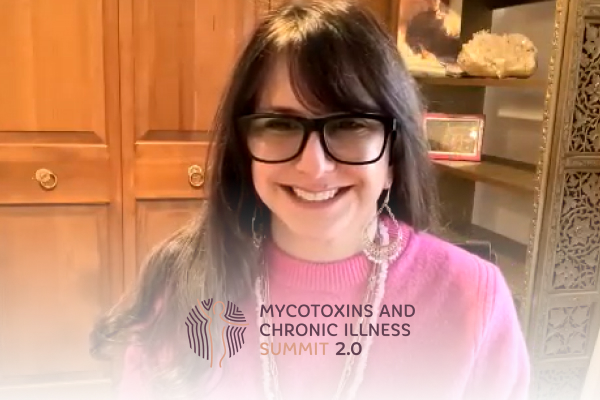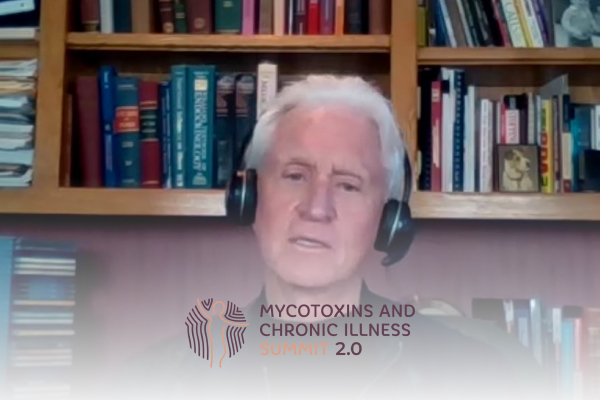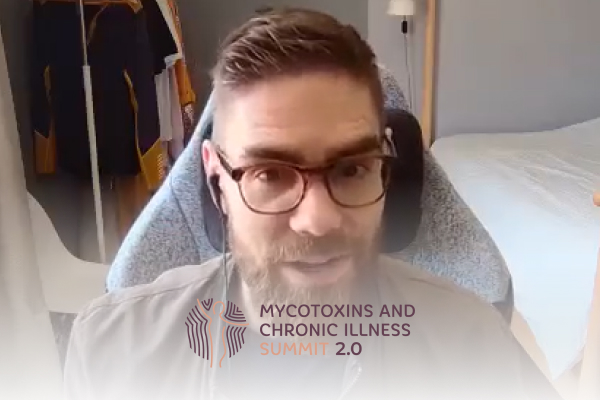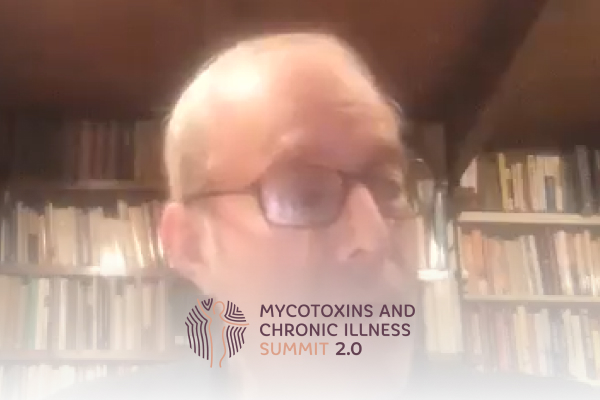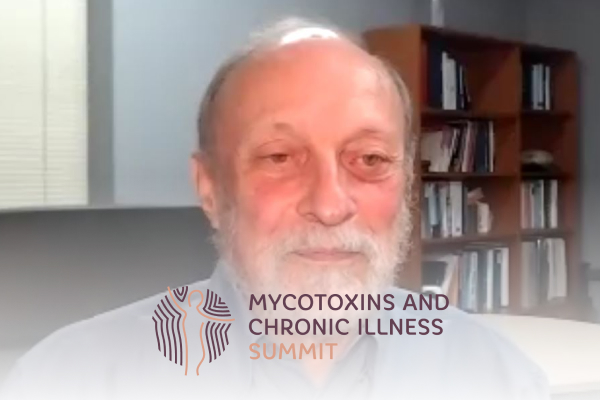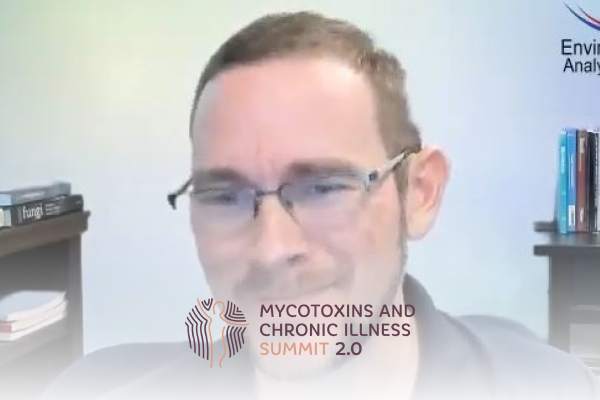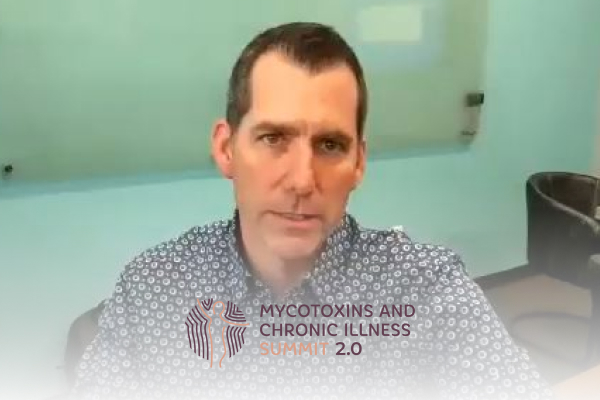Join the discussion below
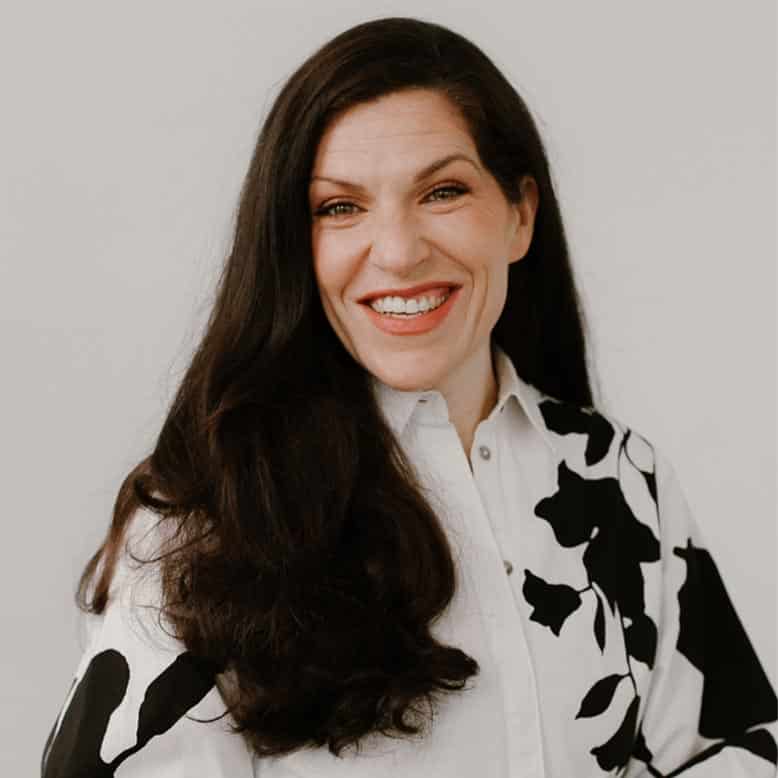
Dr. Christine Schaffner is a board-certified Naturopathic Doctor who has helped thousands of people recover from chronic or complex illnesses. Through online summits, her Spectrum of Health podcast, network of Immanence Health clinics, and renowned online programs, Dr. Schaffner goes beyond biological medicine, pulling from all systems of medicine and... Read More
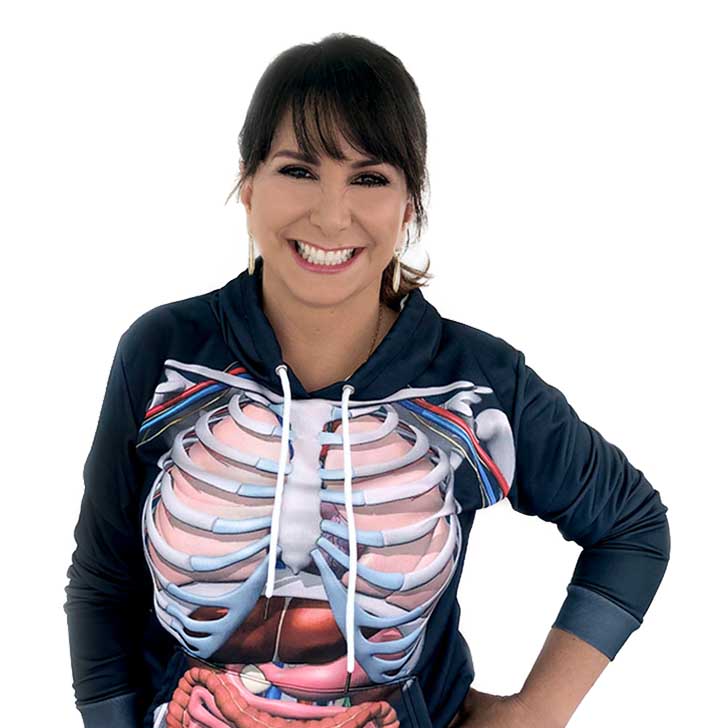
Shivan Sarna is the author of Healing SIBO, TV Host, and the creator of the SIBO SOS® Summits and Community, the Digestion SOS® documentary series, the Gut & Microbiome Rescue Summit, the Lymphatic Rescue Summit, the Dental-Health Connection Summit, and Chronic Condition Research, a 501(c) 3 non-profit to further research... Read More
- A managed chronic condition versus unmanaged chronic condition
- Surprising unintended consequences of chronic conditions and what to do about them
- How to search for your underlying cause
Christine Schaffner, N.D.
Welcome, everyone to the Mycotoxin and Chronic Illness Summit. I’m Dr. Christine Schaffner and I’m here with my dear friend, Shivan Sarna. And we’re gonna be talking about her journey and all that she’s learned, starting with really the journey of SIBO. That’s how many of you know her. She has an amazing following and amazing presence, and she’s done so much to educate this community. So welcome, Shivan. It’s always so fun to connect with you.
Shivan Sarna
I’m so glad to talk to you too, Doctor. Thank you so much for having me. Let’s talk mycotoxins and chronic stuff. I’m so happy that you’re doing this because so many people are so frustrated and we’re on this hamster wheel and we need help. And for anyone who’s wondering what is SIBO, I think I kind of heard of it. It’s small intestinal bacterial overgrowth which will lead off into bloating, constipation, diarrhea, alternating constipation diarrhea, rosacea, restless leg, weird ferritin levels, let’s see what else, B12 imbalances. It can be caused from food poisoning first and foremost, thanks Dr. Mark Pimentel at Cedars-Sinai in Los Angeles for making that discovery and connection.
And it also can be caused from things like endometriosis, scleroderma, adhesions from abdominal surgery, appendicitis, caesarians, injuries like the tennis ball hits you in the gut and you’re like, oh, that, oh, I’m fine, knock went outta me, I’m fine. But your body freaks out and makes all these collagen scar tissue internally. And basically, I’ve had it since I was five. Because I went to India with my parents, they were importers and all these pretty things in the background, Indian. And I’m half Irish. And my mother and father met in New York City and did this beautiful business called the Bells of Sarna together which is very famous if you were, back then and a hippie and Preva. And they sold literally, Doctor, millions of bells. Like that was the thing. I should have a bell right there. Yeah, these brass bells that were hand tooled and he was in Life Magazine and the “The Dinah Shore Show,” and all these great things from the past.
Christine Schaffner, N.D.
Wow.
Shivan Sarna
It was so cool, so cool. So, we go and I’m five and I get food poisoning, very sick, but I’m okay eventually. Then we go back to New York City where I grew up and I go on a field trip to Upstate New York and we’re at a farm, and we’re milking cows, and the teacher looks away and me and a couple of other kids like, take a sip of the milk that’s like fresh out of the bucket, sick, sick, sick. I was so sick. And then my father, who is the Indian from India, he would ask my mom, like, is Shivan going to the bathroom every day? Like basically bowel movement, number two, whatever you wanna call it. And my mom was like, asked me, even though I knew she knew, whatever, it was like this first moment of a body function and shame. And I was probably seven. And bloated, we used to call it the Buddha belly. I’m sorry, Buddha.
And it was just this thing where I had this bloating, even as a child, fast forward, when I was in college at the University of Florida, I literally lived in a sorority house towards the end and I had only to pay half of my sorority house food bill because I was doing food combining, right? Like old school, Harvey Diamond, nutritional hygiene where you don’t mix your carbs with your protein because the enzymes, this is back in the ’80s, very advanced stuff. But I ate all, like none of the food. And I would walk around the University of Florida campus with a gallon of distilled water . Like I was such geek, such a crooner. But I had to feel well, right? So here I am in my teens doing this.
So it’s been a long journey. But I then started working in a television studio that had mold in it and worked there for 20 years and was in deep, deep denial about how I was feeling and didn’t know what SIBO was or anything. Finally went to a doctor in 2015 and he said, oh, you have IBS. And I was like, okay, what’s that? He’s like run three miles. We call him Dr. Run Three Miles in my book, “Healing SIBO” because he also gave me an antidepressant. And I was like, I’m so confused. It was very stressful. And then I finally found a doctor who I call the digestion detective, Dr. Michael Schulman in Largo, Florida, who spent two hours with me. And he’s like, I really wanna see this SIBO breath test that I had made the other doctor give me. And someone had written the word, negative.
No, no, someone had written the word positive, scratched it out, and wrote the word negative on this test. And Dr. Schulman was like, I really wanna see the graph, but I was scared, Christine. I didn’t wanna call that doctor’s office and reveal that I’d switched doctors and inconvenience the nurse at the front desk, even though that’s her job. It was very like weird mindset for me. It was just like, I think sometimes patients with chronic conditions, speaking for myself, we tend to, not tend to, we can on occasion, I hope this never happens to anybody, but be like urg, if I do that, what else do I need to do? And then there’s gonna open up a can of worms and I’m already tired and cranky. So, right?
Christine Schaffner, N.D.
The mold test for your home, that’s where that one comes in a lot, right?
Shivan Sarna
Right? The hassle, what does that mean? Am I gonna have to rip out all the drywall? I mean, and on and on. So anyway, I did the other breath test and a SIBO breath test and of course I was positive. I finally got treated. And then I finally took IBS smart test because Dr. Mark Pimentel, who I’m a fan girl for, he’s amazing person who’s spoken to our community so many times. He developed a blood test to tell if you had antibodies from food poisoning, which was causing the slow motility of the small intestine leading to an overgrowth of bacteria there. And then the, that overgrowth of bacteria ferments your food and it releases gases, hydrogen, hydrogen sulfide, or methane, and that’s what leads to SIBO, which more and more people are doing studies on, which is so cool and they’re finding also this connection with dementia, alcoholism, I mean, all of these, like, wow, that makes total sense.
I think there’s gonna be some stuff about fatty liver that comes out and on and on. So I, in this working situation where I really wasn’t resolving the SIBO because I didn’t wanna take a prokinetic, which is what moves that small intestines motility ’cause I was resistant, because scared. I was like, I don’t wanna take another drug. Now, that prokinetic, which is called Motegrity which is now available in the United States. I was previously getting it in Canada. But prior to that, I literally had it in my house and didn’t take it and, right, I was scared, fear. It was just like fear of the unknown, I already am so uncomfortable, what’s gonna gonna happen to me if I become more uncomfortable? How much more incapacitated am I going to be?
And yet when I finally did understand it a little bit more, which always increases my compliance, which I wanna inspire you all to continue to listen to these presentations over and over again, read the transcripts, search the transcripts, get the summit so you have it as a resource. Because the more we understand, the more compliant I see people be in our 22,000 person Facebook group, I see it all the time. So, I understood Motegrity more, russello, pain in the butt to get it from Canada at the time, it’s now in the US. All of these obstacles, I finally got through it, and I’m like, oh my gosh, this changed my life. There is hope. I am better. This is amazing. Like, my whole thing for SIBO SOS and my company, which is called Chronic Condition Rescue because I had all these chronic conditions, including alopecia, which is hair loss, I mean, things I didn’t even know existed, like, the mold and the Lyme and all that. Because a managed chronic condition can make you feel a 100% better than a neglected, untreated chronic condition. I know you must see that with your patients all the time.
Christine Schaffner, N.D.
So many good pearls here. And I really appreciate you sharing your story. And I know so many people who are listening can relate and I think you make a good, great point ’cause, my lens is always like, okay, let’s look at the root cause, let’s try to really heal on a deep level, but that can take time, right? And what struck me with your story and as I’ve listened to, and these stories all the time is like your illness was ahead of our understanding of it. And so, like it took you decades, to really understand what was going on from that trip in India as a young girl, like, really setting up the whole health of your life in a lot of ways.
And so, I think you make a great point. Like a lot of times we might not completely understand what our patients are going through, but there’s a lot we can do to help support the body’s ability, need to regulate, to make you more comfortable. And so, I think you’re really inspiring people. Like, if they’re resistant to looking at certain things, like, do it, that there’s gonna only be potential progress and feeling better in that journey. So no, I really appreciate you sharing that.
Shivan Sarna
And also don’t have any shame if you can avoid it around having a condition and not doing anything about it. Like, oh, I should be doing this. Well, maybe you’re just not ready and there could be a million reasons for that. So, having the knowledge is really powerful, having that data. I have never been more surprised than when I was relieved to get a diagnosis. Like, who wants to get a diagnosis? Who’s relieved by that? But oh, I’m not crazy. Oh, okay, wait a minute, when they pulled the, so I knew there was mold in the building. I had been learning about mold. I was like, oh, but I’m fine. This is all, I don’t even know what I was thinking. And I wasn’t as well as I could be. And I had terrible brain fog, and I, my CRP, which is indication of inflammation was as if I had a broken leg.
Christine Schaffner, N.D.
Wow.
Shivan Sarna
It was bad. And, but I did not have a broken leg. And finally I went and it was very inconvenient and very expensive to go to this one functional doctor in my area in Florida. She was the only person I could find that did the test and whatever, I just wanted the test, but they had to do like an intake and I didn’t wanna stick with that doctor because I was doing work with other people, but I want, it’s a whole thing. It’s a whole thing, guys. You know this is part time job. So anyway, they pulled the Q-tip out of my nose for the mycotoxin mold test and there’s a little bit of black on the tip and I’m like, that’s weird.
That must just be dried blood. And of course I get the report back, and it’s like masa, all this horrible through the roof mold business. And then like, what are you gonna do about it? Like, okay, well, all right, there’s a relief because I think the truth sets us free but there’s also a lot of DIY involved. There’s a lot of money involved. And when I finally did really confirm that, in my being and like, acknowledge, yes, Shivan, you have mold toxicity and it all started clicking into place. Like, okay, And I remember that DNA connections test I did with Dr. Tom messenger, when he really like, was trying to talk me into getting that DNA test connections test for Lyme, and I just interviewed him for two hours about it. And I still was like, I don’t know. I don’t know.
But I, we went for a walk in the woods. It was my first time to Portland, Oregon. And it was this, I was taping the summit for SIBO SOS Summit One, the first time. And we were staying at this Airbnb and it was on a llama farm and it was like crazy, beautiful, out of the movies. And so we, he’s lovely, I love him very much and we went for a walk on the property. And I said to him just casually, you know Tom, my feet really hurt a lot. And he’s like, oh, the spiral kits love to hang out in there. And I just like threw my arms up and I’m like, okay, fine, I’m gonna do the test. And sure enough it came back with, that I had all this stuff and never had a bullseye, but I remember summer camp, most treasured wonderful memories, I had such a beautiful time in North Carolina girls summer camp from the ages of five through 15, I mean, blessed, blessed experiences there.
But one summer I got the flu in the middle of summer camp. And I remember being in the infirmary and it was like, it was the middle of the summer no one else has the flu. What am I doing here, right? But there it was. And I’m like, I know that’s when I got Lyme, in retrospect, I know it, that was that tick bite. And it just, the things started kind of falling into place. And Mike Nile, erode it. Because I’m like, okay, Shivan, the information’s here, it’s not gonna be as hard, you don’t have to rely on Dr. Google anymore, people, this is not everything. I was, before I even met you or anybody in this space, before I ever did my first online summit back in 2017, started to work on it in 2016, I would just sit there and stare at my computer and be with Dr. Google. And I’d be like, okay, it’s a big world, I know there must be people who know about this.
I refuse to believe that there are people out there who are not also experiencing this, who are in a vacuum. I don’t think it’s mainstream but I have to find them. And that’s really what started this whole journey for me. And now I’m gonna be going on my 10th summit this year and my little beautiful sweet book, “Healing SIBO,” thanks for those great reviews and Random House for publishing it. It’s been a great journey, but I wanna inspire everybody that there is hope, there are answers. And me being here at the summit is a perfect way to really illustrate that and to prove it.
Christine Schaffner, N.D.
Aw, thank you, Shivan. And yeah, the silver lining, and this like, really hard journey that you’ve been able to educate and help so many and connect with all these wonderful experts. And your story is really very much what I see in my office every day. It’s not this one event, even though you obviously had a clear event in childhood, but it’s this combination of things from the SIBO to the mycotoxin exposure with the mold illness and then Lyme and co-infections. And so, that can really be empowering, but sometimes overwhelming for people that are like, I got all this stuff, like, where do I even start? So, maybe just some words of wisdom from your experience, like for the listeners out there, like, how do you, how did you prioritize or how did you find a way to deal with all of this information?
Shivan Sarna
And it is very overwhelming. And so, I kept a question journal and that was, just a notebook, like, ’cause, I, my mind races and like, what about this? What about this? What about this? And then as I went through and learned things like I would check the stuff off. So that helped me mentally. And also when you’re watching a summit, you’re like, what do they call it? Like second year medical student? Like you have every thing.
Christine Schaffner, N.D.
Like everyone’s a hypochondriac. Yeah ?
Shivan Sarna
Right. Exactly. So I kept this running question log that has really helped that I teach people to do because it is overwhelming. I tracked all of my labs and tried to be super organized about my lab testing because that is hard. And, so if you are lucky enough to work with someone like Dr Shaffner, then she’s organizing all that for you and that’s part of her services. So, but for, if you haven’t had a chance or you don’t have a provider and you’re piecemealing it, I do encourage everyone to work with a provider, a skilled professional, but do as much as you can yourself ’cause it’s gonna save you time, energy, and money. And then use that provider as an advocate and a team member with you.
If you’re so far gone that you’re like Shivan, that is a great idea. I can barely get out of bed, then fine. Then just show up, do your appointments, follow the plan. But I really wanna encourage people to try to be as organized as possible, and try to take really good care of themselves and be gentle with themselves, which is easier said than done and to reduce the shame and judgment that we have around ourselves for not doing something better sooner. Even if you have all the information and you’re not acting on it, that’s a whole nother ball of wax.
Like, what does that mean? If I do find the answer, my, I remember meeting Dr. Allison C. Becker online and as a SIBO specialist and having telemedicine, which I thought was totally boo boo, and I realized that not everyone has licenses in all the states and all that and, so that’s not an answer for everyone but I thought, how can someone help me on a Zoom call? And I wasn’t even Zoom back then. It was like, I don’t even know what it was. And the thing is that one hour with a person who really knows what they’re doing is worth 10 with someone who’s guessing.
Christine Schaffner, N.D.
Yeah.
Shivan Sarna
And so, find that provider, get as much information to them as possible, download it into their portal, and don’t have expectations that you’re gonna talk to them via email like every other week, ’cause that’s not gonna happen. I mean, some people have packages like that but I see a lot of people in the Facebook group pissed off, irritated, because, well, I emailed their office and they didn’t get back to me. In this world of blended boundaries, I never ever had an expectation of talking to my PCP or primary care physician or any doctor in between visits. So, if that is gonna bother you, get that expectation up front, like, hey, what about, when can I talk to you again? Well, at our next appointment.
Okay, well, what I would do is I would book it. Like, I had like four appointments lined up because I had so many questions. I knew there was a reduction of my stress knowing that, well, my next appointment’s in four weeks, here’s my list. By the time I get there, maybe some of these questions are already gonna be answered, but I have a target of when this knowledge gap is gonna be fulfilled versus floundering, and being like, oh, this is never gonna get better. The last thing I just wanna say has to do with language. And the other day, we were in what I call, a tea cozy because I’m not a medical professional, I’m a patient advocate, and I’m not a health coach and I don’t wanna be a health coach, I do wanna help people though. And I have through all this work, but we had something that was basically a brainstorming session.
So I just went into my Facebook group for the people that joined our course, SIBO Recovery Roadmap and we brainstormed. Like, they were telling me about their case so I was like, this isn’t medical advice, but this is what I would do or just look into this. Or hey, have you thought about this or have you talked to this person? And I had this lovely woman and she was like this, she was like, well of course I couldn’t get ahold of the doctor, and then inevitably, they never called me back and of course the antibiotics didn’t work. And it was just like this foregone conclusion of like, fatalistic unhappiness. And I just thought, wow, I get that. I have been there. I have so much compassion for you, but let me help you with your language because I don’t want you sabotaging yourself anymore. So, take that next right action step but watch your language because it really does feed into a victim mentality and that doesn’t help anyone.
Christine Schaffner, N.D.
Yeah, yeah, no, that’s really wise and it can be hard when people have been in it for so long and it can get, it can be weary. And so part of the work is just being around people like yourself and reminding you to like, okay, you can have your moment, but like, let’s shift it and trust the timing, trust that you’re bringing the right resources at the right time, and really believing in the treatment. I think that is absolutely part of the healing journey. And I see that within my own patients, the people who really are open. And everyone’s on their own, in their own part of their journey.
But the people who are really receptive and ready, like, it’s amazing how quickly they shift and then the people who have work to do, they just have work to do. But it is a big, it is part of the equation. So I’m so glad you brought that up Shivan. And I guess as you look at like at your own journey and what you’ve seen in your community, any clinical pearls or insights of like roadblocks that you might have had or resistance that you might have had throughout your journey that you wanna make people mindful of so they can be on the lookout for that.
Shivan Sarna
So if you are doing a SIBO breath test, make sure you get the graph and that you don’t just get the positive or negative from that lab. And then really, like, follow through with what can you do to prevent relapse, keep that question journal. Obstacles, I would say are definitely attitude. Facebook is a mixed bag of these support groups. We keep ours very positive. Our motto is, be nice or be gone. And so, I think it’s great because you can really get support and good information. On the other hand, if somebody’s having a bad day and that feeds your bad day, then it’s not supportive. So sometimes you have to take a break. Get family enrollment and support that way. If you have passive, aggressive, narcissistic family members or people in your work environment who are constantly diminishing your situation, they really don’t, in my personal opinion, do not deserve to know of your situation. So, if you have people that haunt you and are energy vampires, I definitely see that as a preoccupation in people that can be a barrier to healing as well.
Christine Schaffner, N.D.
So true. I think Dr Northrup even wrote a book like energy vampires and that has been a light bulb moment for a few people. But you have to conserve your energy, right? And you have to surround yourself with a team who will listen and who will guide you and people who will uplift you. So I think that’s so wise, Shivan. So, Shivan, you are always creating the next educational resource to help people on their journey. So I want people to learn all the great ways to connect with you and all the wonderful ways that they can learn from you.
Shivan Sarna
Thank you so much. So SIBO SOS.com, SOS used to mean, come save me, but it has come to mean, save ourselves, very organically, that transforms. So it’s, the website, SIBO SOS. You can get my book, “Healing SIBO” yay! It’s really my journey and a protocol on how to address IBS and SIBO because SIBO is IBS. It’s explained there. And then also we’re just, depending on when you’re listening to this, doing the Liver, Gallbladder Rescue Summit, we’re gonna be doing the Lymphatic Rescue Summit this year as well, and the Fascia Rescue Summit with our dear friend, Kelly Kennedy towards fourth quarter.
And if anybody has any dental issues, which has been mindblower, that you and I have had so many conversations about out, so, thank you for that. I also did the Dental Health Connection Summit, which is very confrontational. I just wanna wrap up with that idea, like the amalgams, the cavitations, the dentist you grew up with, the pain you experienced as a child and never, you hate going to the dentist, the flossing trauma where your gums are bleeding, blah, blah, blah.
I met Hal Huggins who was this most controversial dentist in 1986. And I was in Tampa, Florida for one day. I worked at a PR firm and I did his PR for this one day trip he was there. And so I learned about the dangers of amalgam fillings. And it changed my life. This one chance thing. So back in ’86, I learned about it. Then fast forward to the 2020s, I was lucky enough to do a summit on it. And I thought this was gonna, like, I mean was very successful, but I thought it was gonna be the biggest thing I ever did. And we’ve had millions of downloads and all that, but it was the people who loved it, and really got into it. And they were like, oh my gosh, this answers so many questions. But the people who were not into it and were resistant to it were like, you look crazy. And so, you’re crazy. And at that time I heard about someone with a dental connection to their health and how her ankle pain went away when she actually had a tooth extracted. I thought she was nuts. But like, what do you think is nuts right now? Maybe the answer to your future health.
Christine Schaffner, N.D.
I love that. Now, the dental piece is the most rewarding work that I do. But I hear you. It has to be done with the right team, the right support. And we have so much trauma in our mouth and from dental work that it can, when people might not be ready to see that or have issues around that, I can totally understand it. So it can be a Pandora’s box as you found. But I’m so grateful you put that summit on and all the education ’cause it is really, really important. So, thank you, Shivan. Is there anything else on your mind or your heart that you wanna share with the audience as we wrap?
Shivan Sarna
I wanna say that there is hope. Okay? I know I’ve said it, but I really wanna convey that to you even more. You have a mission on the planet, whether it’s to be a great parent or a great teacher, or just get through the day and resolve your past trauma. Whatever it is, you have a mission, you have a karmic blueprint, and the health plays the body, plays a role as the body is a vessel for your soul. So I really wanna encourage you to act with love towards yourself and know that you deserve to be well.
Christine Schaffner, N.D.
Okay. I love that. I’m so glad we ended with that message of hope and thank you so much for being on the summit and we’ll have all of the wonderful ways to connect with you, attached to this recording. So, thank you, thank you, thank you.
Shivan Sarna
Thank you.
Downloads

